Corporate Culture Enforcement: A Law of Business Organization Report
VerifiedAdded on 2021/05/30
|5
|962
|24
Report
AI Summary
This report provides an analysis of corporate culture and its enforcement within the context of business law. It defines corporate culture as a system of shared beliefs, values, and assumptions that influence employee behavior. The report emphasizes the importance of a healthy corporate culture in improving company performance, employee retention, and productivity. It discusses key components of corporate culture, including attraction-selection-attrition processes, leadership, and reward systems. Furthermore, the report references the Corporations Act 2001 and ASX principles to highlight legal and ethical considerations for corporate governance in Australia, including the responsibilities of employees, the importance of ethical decision-making, transparency in finances, and open communication between employees and management. The report also mentions the role of regulatory bodies like APRA in ensuring ethical conduct and financial integrity. Overall, the report underscores the significant role of corporate culture in shaping corporate behavior and contributing to a better future for organizations.
1 out of 5
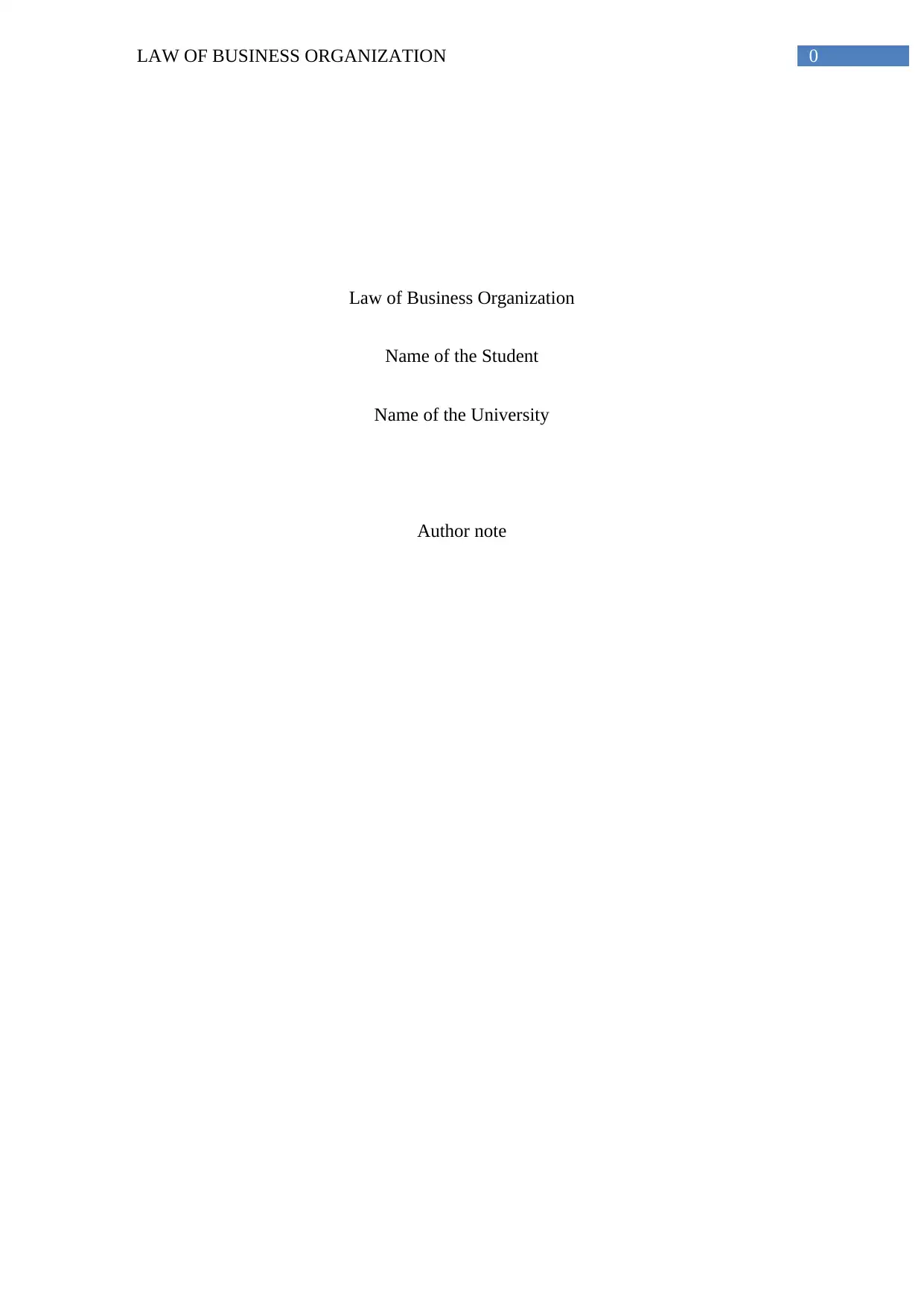
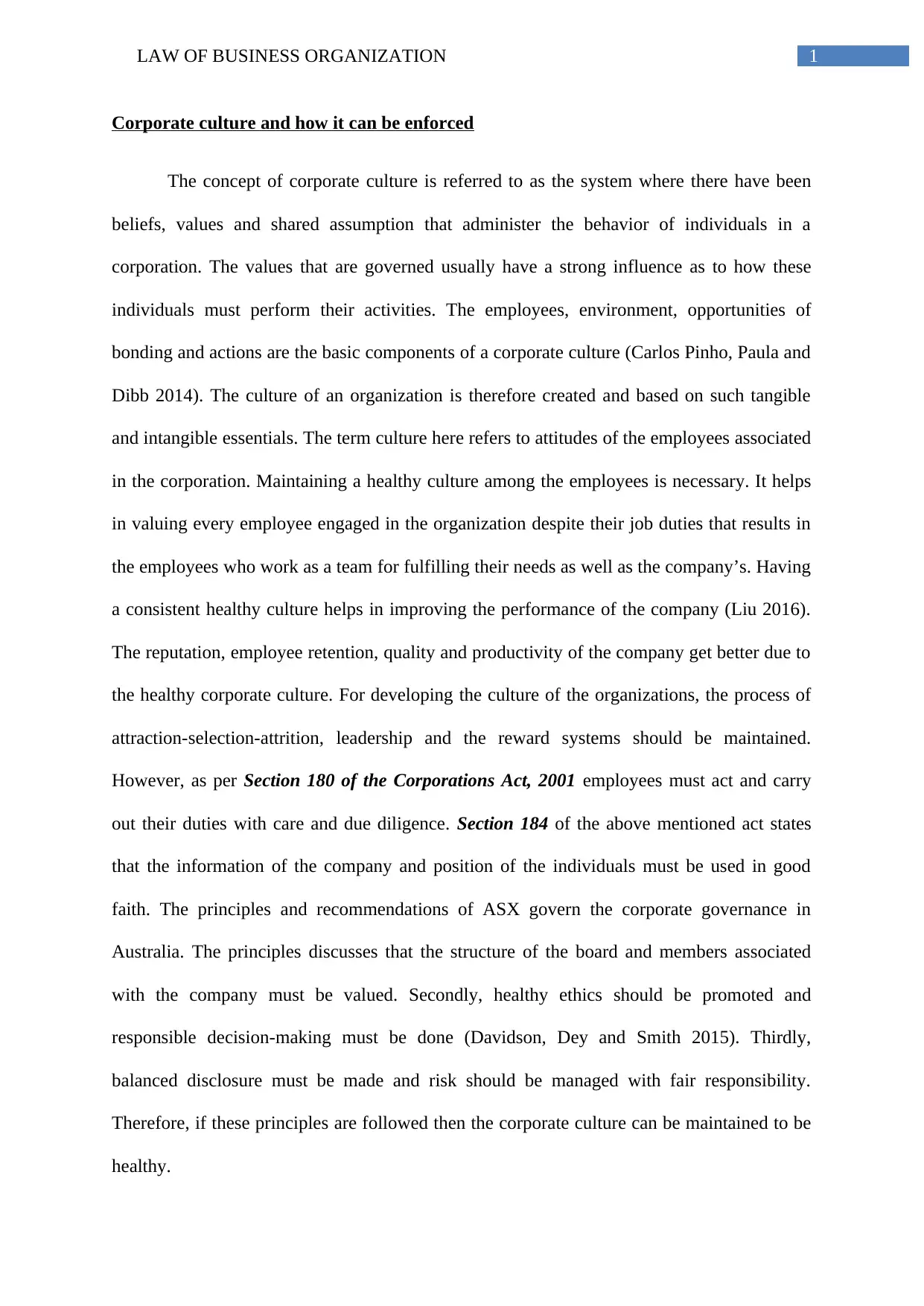
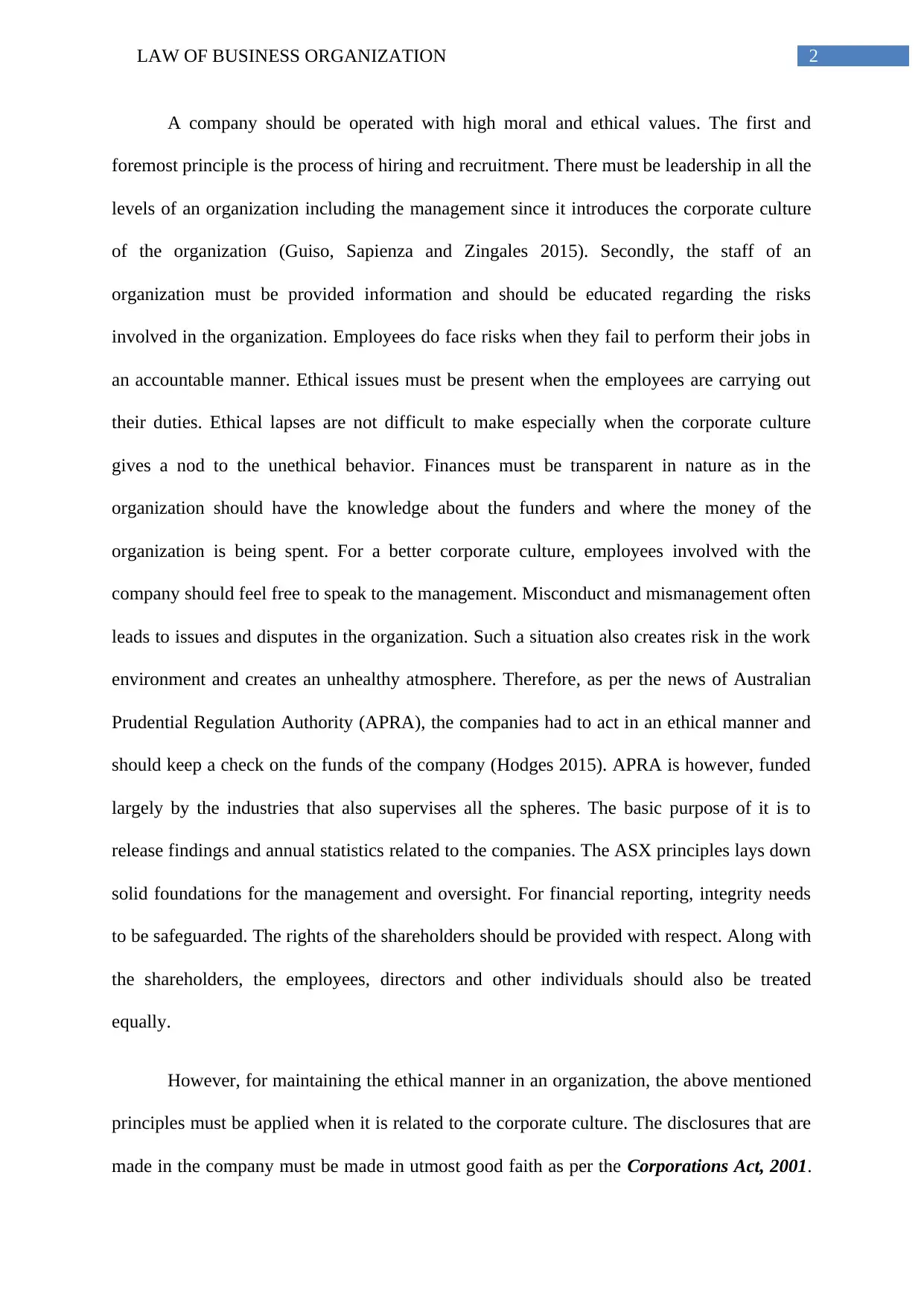

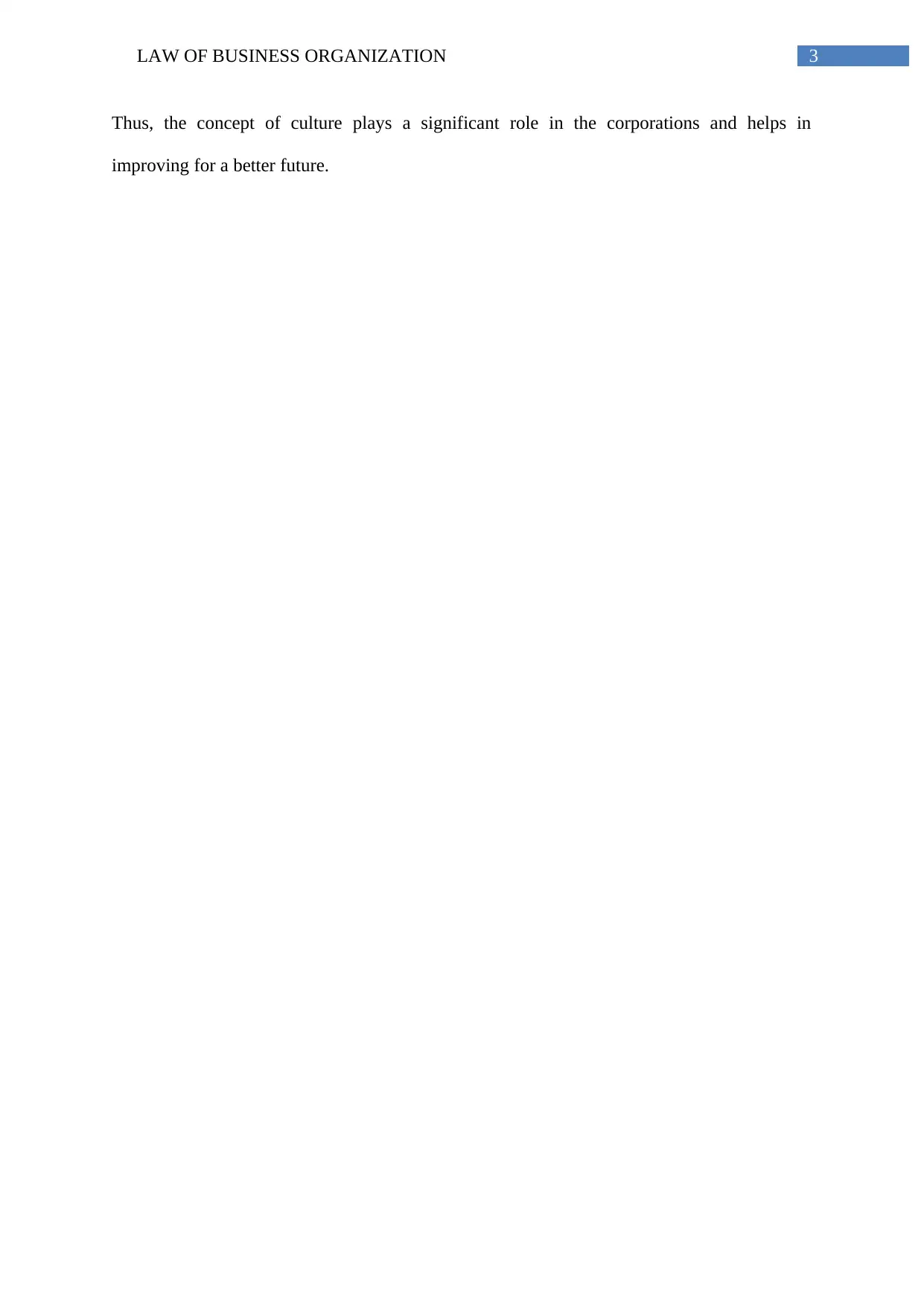
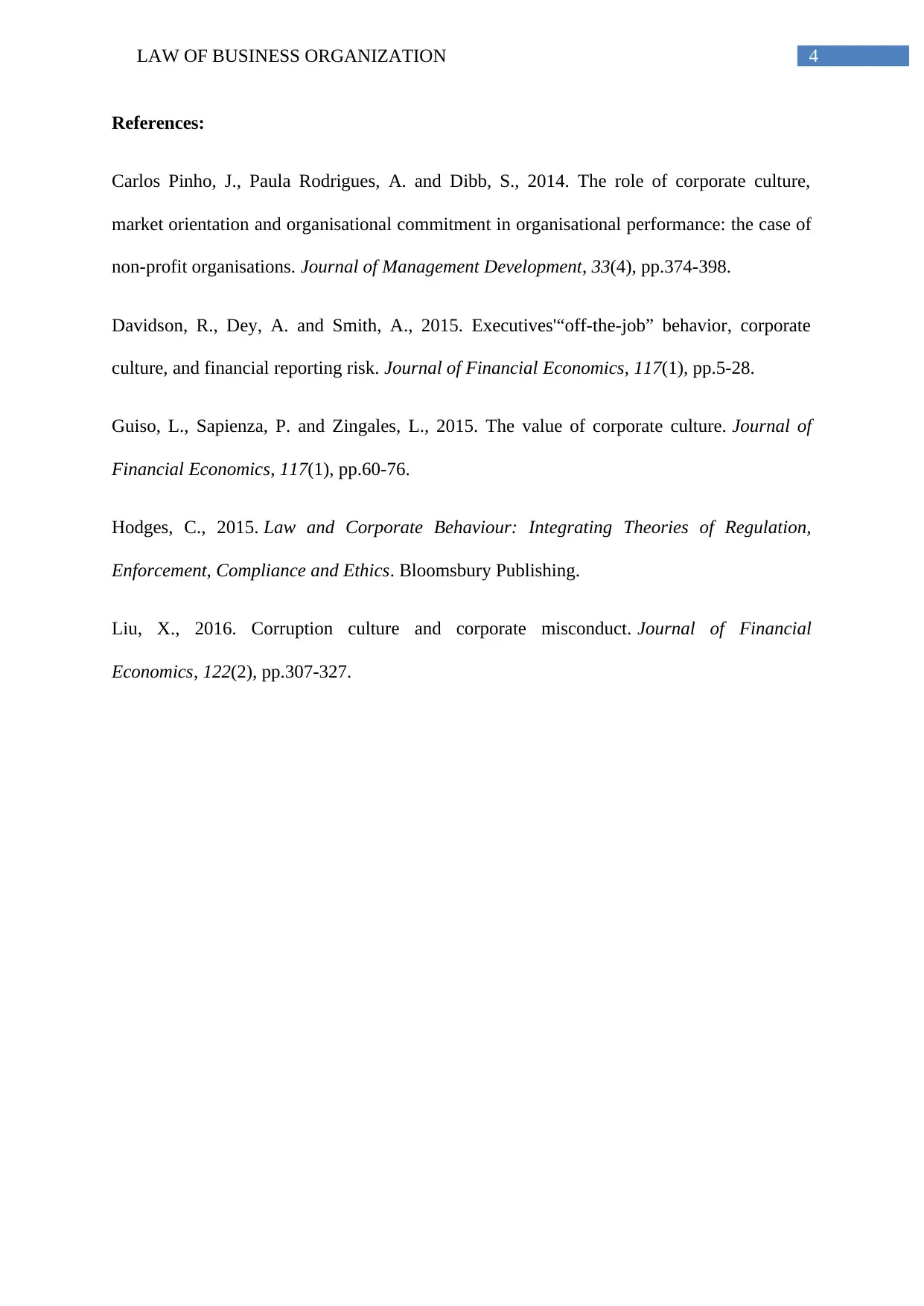






![[object Object]](/_next/static/media/star-bottom.7253800d.svg)